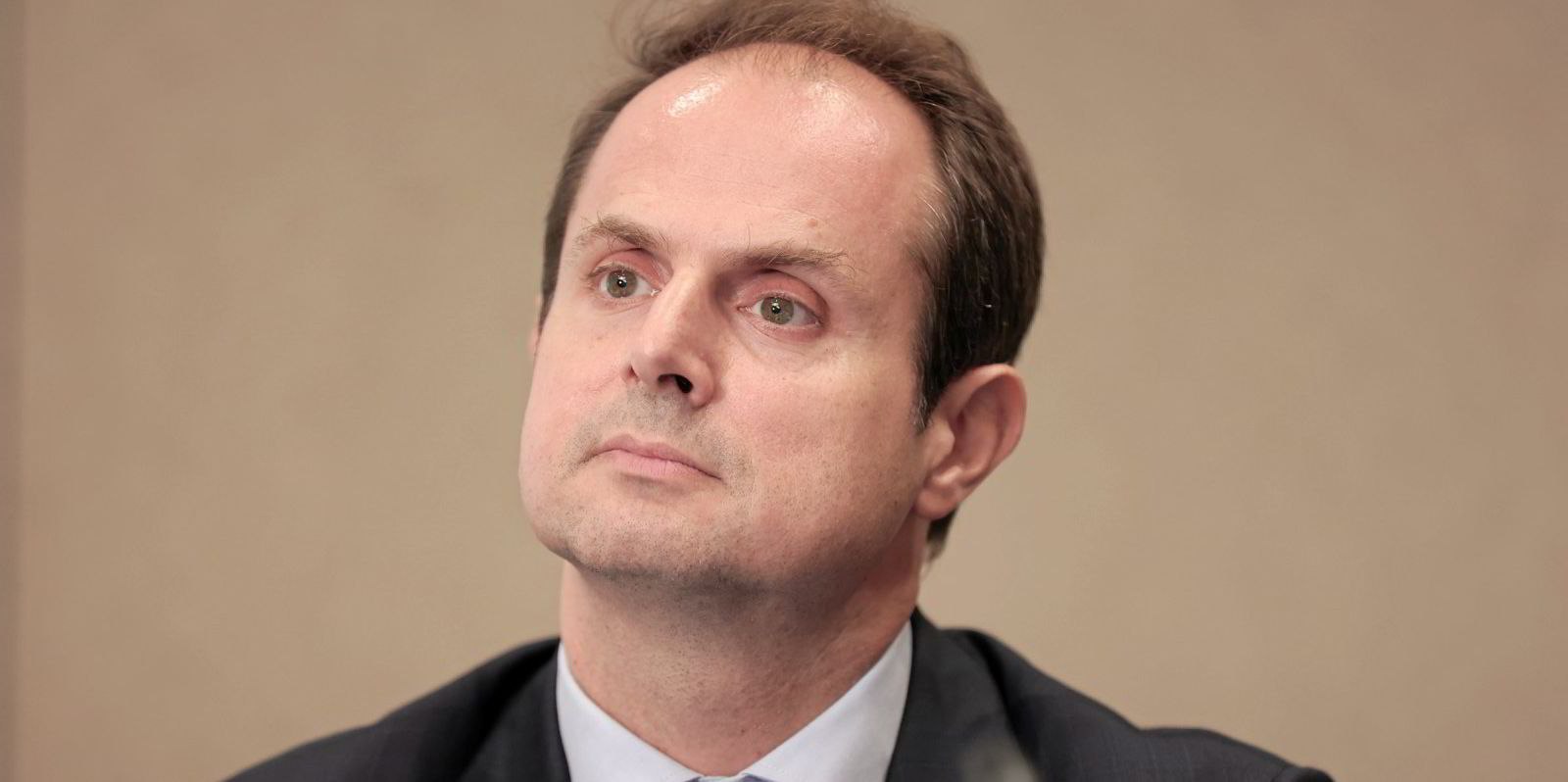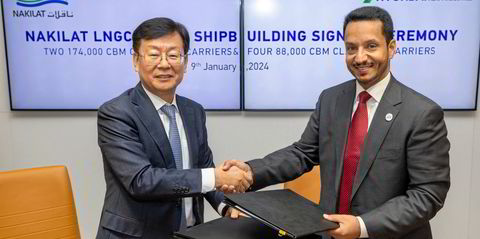An exciting new market in shipping CO2 captured from industries still burning fossil fuels is set to “blow up” by the end of this decade, according to a leading shipowner.
Jerry Kalogiratos, CEO of Capital Product Partners, said the carbon capture and storage (CCS) market would be a key shipping trade as the world decarbonises, alongside ammonia.
“The CCS market is a huge market that — in the next five years — is going to blow up,” he told Marine Money’s Greek Ship Finance Forum in Athens.
In Western Europe alone, there are CCS projects undertaking their final investment decision that would account for between 60 and 100 million tonnes per annum. It will be “a very significant market. This is going to blow up somewhere between 2027 and 2030,” he added.
While demand is set to grow fast, there is also limited shipyard capacity available to build such specialist ships.
One South Korean yard can build four bilobe CO2 carriers a year, Kalogiratos said. “And we are talking about dozens of ships that are going to be needed by 2030.”
Kalogiratos’ comments came on a panel shared with four other prominent Greek shipowners who were asked their views of future investment opportunities, as part of the event’s 25th-anniversary edition.
All the owners agreed that shipping markets today were among the most complex and challenging they had ever experienced.
“I think this is one of the most difficult shipping markets to predict for quite a while,” Kalogiratos said.
Petros Pappas, CEO of Star Bulk Carriers, said he would not invest in containerships, and tankers were currently overvalued.
“On the dry side, I don’t think anything spectacular is going to happen unless the war in Ukraine stops, and then there will be rebuilding and there will be congestion and that will be good for market,” he said.
“Right now, I would stay patient, I would not invest in shipping. I would wait to see where things go. We are in a difficult period as we do not know what fuels we will be using in the future.
“I would say stay on the sidelines and wait. Maybe invest a little in real estate in Greece. I think this is going to have the best return on investment.”
John Coustas, chief executive of Danaos Corp, admitted that the container ship orderbook was daunting, but counter-balancing that was that the market was the most sensitive to the cost of fuel and increasingly the price of carbon emissions.
“That means that new technology in container ships is having a much larger effect compared with the slower-moving vessels such as tankers and bulkers,” he said.
“The orderbook does not give confidence to move in a big way. However, we are still investing in this market with newbuildings that we are trying to future-proof by having them methanol-ready.
“Overall I would agree it is a period in which we should not take any significant risks. Investment should be in decarbonisation, whether in terms of ensuring ships minimise their consumption or various interesting advanced carbon capture concepts.”
Leon Patitsas, founder and CEO of Atlas Maritime, described cargo demand as “pretty healthy”.
“We think that this uncertainty in the Middle East will be very positive for tankers,” he said.
“The US is doing everything they can with their diplomacy to ensure that this war doesn’t spread to other fronts. And nobody wants actually the war to escalate because what would that mean is a humanitarian crisis, but also a price shock on the price of oil.”
In the past three years, Atlas has sold 11 older ships and ordered 17 newbuildings worth $1.3bn, mostly tankers but also some car carriers, Patisas said.
“It is a very, very difficult environment to invest in shipping,” said Elias Sakellis, partner and chief investment officer at Borealis Maritime.
“Prices are high and way above their mid-cycle levels from a historical perspective. We also need to remember that for the better part of decades, if you compared shipping to any other major asset class, it was inexpensive.
“Having said that, on a relative basis, one of the things that sticks out — has been sticking out, at least in our opinion for the last couple of years, and we’ll probably continue to do that — is the dislocation in the oil markets.”
That view was the driver behind Borealis’ rotation out of container ships and into offshore around 18 months ago, Sakellis said.





